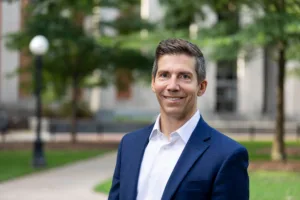Attending live events can combat loneliness and build social connections, particularly if those events are in person, according to new research from the University of Georgia and Brigham Young University.
Led by Richard Slatcher and Julianne Holt-Lunstad, the research team analyzed data from 1,551 participants who reported their experiences before and after attending various events, from concerts to fitness classes.

"This research underscores a fairly simple but, I think, powerful takeaway: If you want to feel more socially connected, go to events that are in person, that encourage participation, and that you can attend with others, especially if they're recurring," said Slatcher, Gail M. Williamson Distinguished Professor in the UGA Franklin College of Arts and Sciences' department of psychology. "The average person looking to feel less isolated might benefit from something as accessible as a weekly fitness class or local concert with friends."
"This work also has implications for those who plan events, whether it be a community event, corporate event, fitness class or a dinner party," Holt-Lunstad added. "To encourage active participation and engagement with others at the event, minimize elements that are passive and build elements that allow time for conversation, hands-on activities or give each participant a responsibility."
Active participation was key to maximizing feelings of connectedness, the study found.
"Humans are fundamentally social beings," Holt-Lunstad said. "We have robust scientific evidence documenting the consequences that occur when people lack social connection (e.g., social isolation, loneliness) that go beyond well-being and mental health, to influence both individual and community health, safety and prosperity."
Regular in-person events needed to maintain feelings of connection
Attending events in person rather than virtually, going with others rather than alone and participating in recurring events rather than one-time experiences all enhanced these feelings of social connection.
"These findings are especially relevant post-COVID as people are still navigating how to rebuild community and combat the isolation many experienced during the pandemic," Slatcher said. The U.S. surgeon general has declared loneliness an epidemic and issued an advisory led by Holt-Lunstad. This study offers timely, practical steps toward addressing these concerns and fostering connection.
However, the study also found that the boost in connection didn't last long. Feelings of social connection typically weren't sustained 24 hours after events ended. This suggests the need for regular participation in such activities to maintain benefits.
"We believe these findings can empower individuals and communities," Slatcher said. "Small, consistent choices - like going to a local yoga class or volunteering regularly - can create genuine opportunities to feel seen and connected."
"In a world that is increasingly isolated, gathering people via live events might be one way to start reversing these trends," Holt-Lunstad said.
The study was published in Social Psychological and Personality Science.
The researchers also developed a toolkit to accompany their findings, Events 4 Connection, available here.






